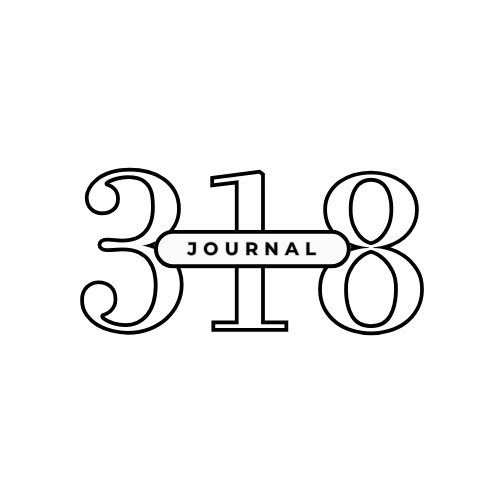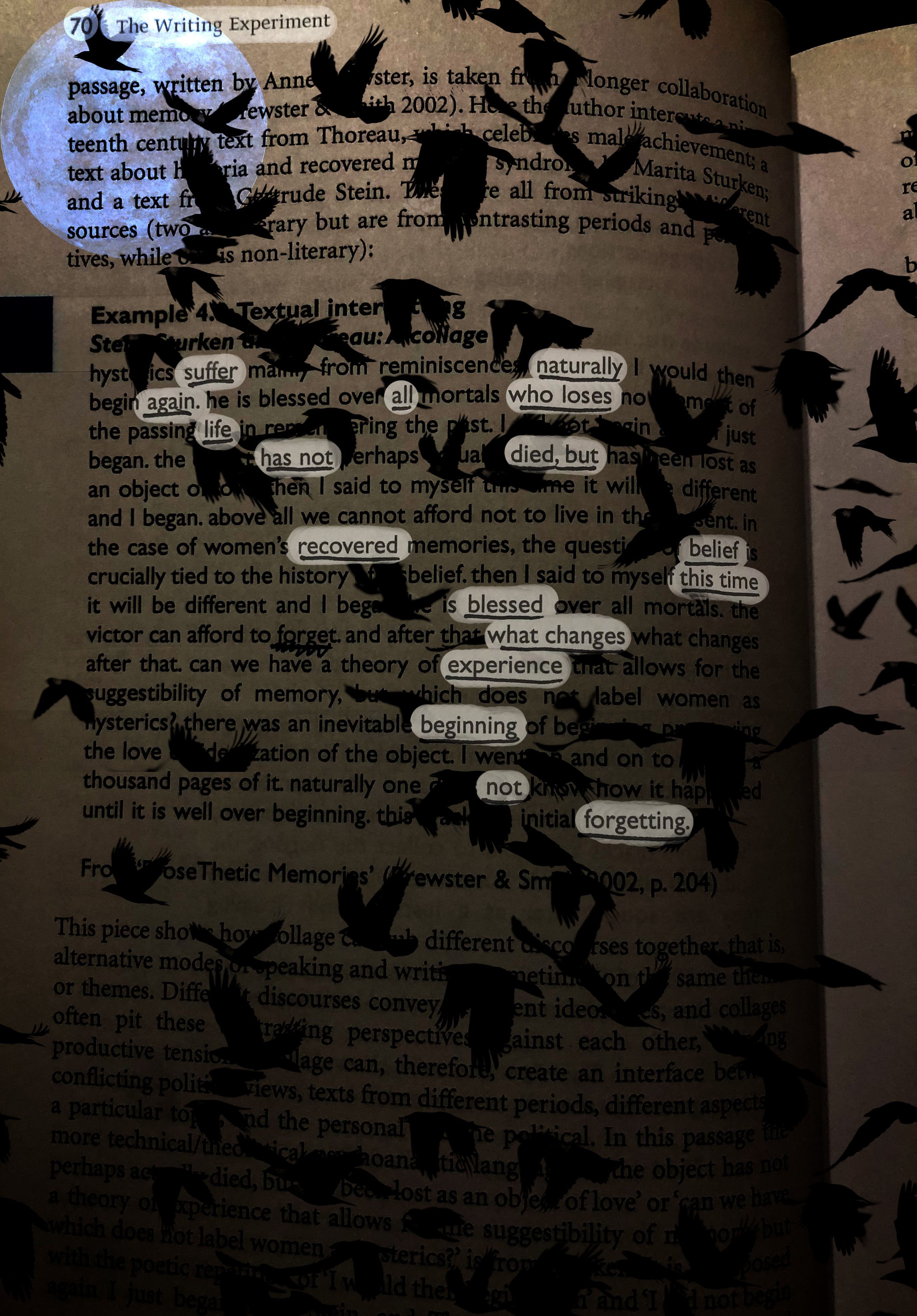Avarium
Benjamin sat behind his typewriter. He stacked paper into a neat pile, tapped it on the desk, inserted, stretched his arms to top of roller coaster proportions, yawned like a morose zoo lion making his obligatory movement for the day, put his right index to j, his left index to f, and settled in to do the work.
But he was parched.
He put the kettle on. Pacing, he let some light through. After all, he had scintillating stories to write, Dickensian triumphs where hope prevailed, intricacies of human neurosis explored with Nabokovian eloquence.
He frowned.
Perhaps the mood called for the psychological gloom Henry James created. He closed the curtains.
Which reminded him. He tightened several screws on his typewriter, tapping the paper again, hopefully having resolved the rattle that kept him from writing yesterday. He sat with his tea. Frowned.
He decided he was his own man. Benjamin drew the blinds half way again, leaving a little hope in the gloomy room, perfectly analogous to what he wished to accomplish with his own writing. Smug smiles for our genius.
Left index f. Right index j. Breathe.
One demerit for arrogance.
Had Katie called yet? Worry creased his brow. On the fire escape, a pigeon pecked at the birdfeeder. Its head struck down. He thought of keys hammering letters when it pecked. He pulled the lever and settled back in. The lever reminded him of the bolt action on his father’s M-14. The one that was really in a war, with the scratches and chips to prove it. Those thoughts were not conducive to productive writing, however. Benjamin thought again of birds.
That was it. He’d write about birds.
A period piece? Thematically, what can you represent with birds you can’t with humans. They can fly, obviously. They sing. The boys are prettier a lot of the time, that’s different. There’s vultures and hummingbirds and whole groups they call murders.
Ahhh.
He found it. The muse descended. His muse would now be a parrot, leaning over to squawk all avant garde in his ear. Yes, a parrot that spoke Latin! Put it in the story. What’s that Musilio? The side without the hearing aid please.
He typed: Melvin Andrews ran an aviarium on the corner of Juniper and 13th.
Not quite.
He looked up avarium. In a dictionary. No internet here. Thus, thusly, thusilio, the typewriter. It prevented distraction. Benjamin, afterall, was a professional.
Avarium was a no go. Aviary. That would do. His muse squawked consent.
Again: Melvin inherited an old aviary from his grandfather. Where wings once flapped, spiders dwelled. The stones were damp, moldy.
Haunted aviaries wouldn’t do.
Once more, with some depth for our poor Melvin: Melvin stood at his mother’s grave, destitute of meaning now. He looked up to the sky, its sparse clouds, infinite stove flame blue, he questioned the audacity of an existence where such a pristine day could arise in his sorrow. With chin high, he asked the universe, God, whoever was tuned in at the moment, Why? Why? Why? A splat of bird shit hit his chin. Some cultures, according to his mother, believed this was good luck.
Benjamin laughed at his wit. He did that often. A giggling Narcissus before a funhouse mirror. He stared at the words a while, scrunching his nose, then ripped the paper from the typewriter and threw the crumpled ball across the room. It landed at the foot of a mountain of paper balls beside an empty waste basket.
He paced.
Swept a little. To get his mind working.
Washed the dishes and read the scene from Blood Meridian where the Comanches rained down on the kid. For inspiration.
Sat. Placed his left index on f, his right on j. Sighed. A choked little sob rattled up his throat.
What Remains
I hear them through the night. The beams above me creak and groan like moored vessels. I shut my eyes and squeeze until colors blossom in the darkness. Again I lie festering in cold piss until dawn.
My gruel’s bland as the hills I’ve grown accustomed to. I eat a spoonful and head out. The Italian who described hell as a frozen wasteland knew more than he’s given credit for. Harsh winter greets my cheeks with fangs and I lower my eyes. Goody Hutchinson and Rebecca Nurse are waiting. They scream and feign convulsions in the bank as I pass. When I’m far enough I hear cackles. It’s funny, if you could hear them you’d probably think of witches.
At the meeting house-God only knows why we haven’t burned it from our memory-I move my lips and fall to my knees when it’s time. Their eyes follow me. I catch their murmurs when I cross a threshold. A few still greet me at least, most with just nods. These days my face has forgotten its smile. I’m bleak as the January fields and my heart is just as frigid.
I had a lover for a time. His name was Jason. He was a fine man, unconcerned with the town’s gossip. At least, for a time. I thought the dark clouds over my life had finally parted. They ruined that too. Not the town’s people, though they tried.
It was them.
Jason woke in pain one morning after we’d made love. The bedding was spotted burgundy. Small punctures covered his back. Blood soaked my hands, and although I pleaded with all the might I could muster-a pathetic amount if I’m honest-his heart had hardened against me. He inquired of the townsfolk and they told him what we’d done. They said I tried to imitate the devil’s mark. Elizabeth Hubbard, sowing discord again. Ha! Sowing discord into the flesh of the only man that ever came close to loving me.
I’m ashamed to say I tried harder to convince the people in the meeting house that I was under the devil’s affliction than I did to convince Jason to stay.
Mary Walcott assured me it’s only guilt. She heard them for a time, she says. So did Abigail. I believed Abigail. “Hallucinations,” Mary calls them. Tell me, can you converse with hallucinations? Do I imagine the rope marks on my throat? These scars? Am I imagining the rotting smell that wafts through my room when I hear them?
I’ve talked to a few of the others. Sarah, Mercy, Betty Parish. She was so young. Susceptible to our foolishness. She’s married now. A few towns away, happy. I’m happy for her. Abigail walked into the woods one day and never returned. I saw her pale face at the edge of the forest a month later. She was nude, pale as a rabbit’s ass. When I saw she’d finally put on some weight I knew she was no longer with us.
I suppose I’m happy for her as well.
Which hell is worse, what awaits those who take their own lives, or the continuous torment of your past sins paraded before you? I’ve tried to pray. No words come. I wonder whether God even hears. How many women and men did we send swinging from the ends of ropes? I regret I’ve been too cowardly to tie my own.
This is what my life has become. While the people of Salem go on as if nothing happened.
I look down while I walk through the village and hear the syllables of my name stretched in a dirge.
El-iz-a-beth.
Last week I noticed movement from the pile of boulders behind the Miller’s barn. I walked a little closer. Rocks rolled to the dirt as the pile shifted, a withered hand reached through the stones and grasped at the sky. Giles Corey has joined my procession.
The path to the meeting house is lined with the accused, writhing and pointing my way with rotting fingers. Red rings are burnt into their purple and bloated necks from where they hanged. Giles is flat and deformed. Abigail stands in the distance. Somber as ever.
Last night the beams squeaked and I couldn’t resist. I looked. I saw hanging feet, swarming with flies and spinning above me like an infant’s mobile set up by devils. The terror of what I’d heard each night clogged my throat and stifled my screams. Goody Parker’s face spun into view with a smile as happy as a doll’s and eyes black as buttons.
Tomorrow I’ll go to Goody Miller’s and borrow some rope.
Author Bio
Chris Bonner is a senior at Cal State San Marcos. He lives in San Diego with his girlfriend, daughters, and horde of feral cats. He enjoys unsettling people with words and perpetually failing at basketball.



